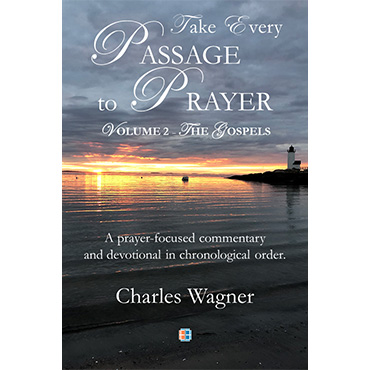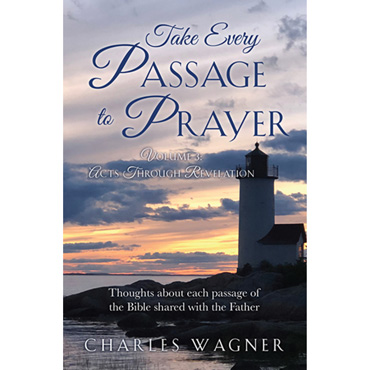The Gramazin Blog

Herod Executes John the Baptist
Take Every Passage to Prayer - Volume 2, The Gospels
Sunday July 21, 2024
Matthew 14:6-12, Mark 6:17-29
Father, believers live in a broken world. Many of our neighbors are evil and they would like to exterminate us from society. Father, please protect us from their actions, sustaining our ministries and giving us more time to touch lives for Christ. However, if it is Your will for us to be killed by evil men and women, we pray that our last few minutes will honor You as we sing praises to the glory of Your name. Amen.
Father, when we last tuned into the “reality TV show” about the family of Herod the Great, in the section “John the Baptist is Arrested”, Herod Antipas had arrested John the Baptist in episode 25 for daring to criticize his marriage to Herodias, his sister-in-law. Here in episode 26, John the Baptist is executed for this crime.
Episode | Plot |
25 | The Jewish population disapproves of the marriage between Herod Antipas and Herodias. John the Baptist, who has a large “social media” following, so to speak, criticizes Herod Antipas for marrying Herodias. He is arrested. Luke 3:19-20. |
26 | Herod Antipas has John the Baptist beheaded at the request of his stepdaughter Salome, who makes the request on behalf of her mother Herodias. Matthew 14:6-12, Mark 6:17-29 |
27 | Herod Antipas does nothing to stop the crucifixion of Jesus Christ, delegating the decision to Pontius Pilate. |
28 | Herod Agrippa, the brother of Herodias and son of Aristobulus, rules Palestine during the events recorded in the book of Acts. |
29 | Herod Antipas was accused of conspiracy and sentenced to exile by Roman emperor Caligula. |
Herod Antipas hosted a party on his birthday. His stepdaughter, Salome, danced for the guests and Antipas was delighted. He was so delighted that he promised to give Salome anything she asked for, including giving her half of his kingdom to rule if she asked for it. Her mother, who was still furious with John the Baptist for having criticized her marriage to Antipas, heard her husband’s promise to her daughter. She saw an opportunity to have John the Baptist executed and she took full advantage of it. When Salome asked her mother for advice about what she should ask for, Herodias encouraged her daughter to ask for the head of John the Baptist to be delivered to her on a platter.
The text tells us that Salome hurried back to Antipas, saying:
“I want you to give me right now the head of John the Baptist on a platter (NIV).”
The word “hurried” implies that Salome was excited about her mother’s suggestion. She agreed. She thought the execution of John the Baptist was a good idea. I do not doubt that there had been much discussion in the home about that “awful man” who had criticized their family. Salome had been indoctrinated by her mother that he was evil and needed to be exterminated.
The text tells us that Herod Antipas was distressed with the request. Why?
- On the one hand, he feared John the Baptist, believing John to be a righteous and holy man. While Antipas didn’t understand what John the Baptist was talking about, he did enjoy conversations with him. The text tells us that Herod tried to protect John during his imprisonment. This implies that there had been many officials and advisors, as well as his wife, who had called for John’s execution. Herod had consistently said “no” to them. It appears that Herod felt guilty that he had arrested not only an innocent man but a man of God. He no doubt was afraid of Your response should he ever execute John.
- On the other hand, Antipas had made a public promise to his stepdaughter, that he will give her whatever she asks for. How could he say “no” with all of the guests listening to the conversation? If he did, news would spread that the king was a softy, unwilling to behead a prisoner. He might become known as indecisive or that his decisions lacked resilience. Perhaps more significantly to Herod, there would be hell to pay with his wife and stepdaughter if he publicly humiliated them by rejecting their request.
Antipas decided that the risks of trouble in his homelife, or in his kingdom, if he spared John the Baptist were greater than the risks of offending You if he didn’t. As is true with every rebellious person, Antipas decided worldly concerns of today outweigh spiritual concerns for tomorrow. He called for the immediate beheading of John the Baptist. John’s head was brought to his stepdaughter on a platter , and she carried it to her mother. John the Baptist’s disciples were informed of the beheading and came to retrieve his remains for proper burial in a tomb. They went to Jesus to tell him about what had happened to John. Amen.
The stepdaughter may have been like a young girl who steals the show from a bride on the dance floor at a wedding, with all the guests delighting in her cuteness and innocence. Or, the stepdaughter may also have been a teenage girl who danced provocatively, much to the “delight” of older men in the crowd, including Herod Antipas, who thought things they shouldn’t have. Given what we know about this family, the latter seems more likely. It is rather creepy.
Consider the decision made by the two women: the daughter could have received half of Herod Antipas’ kingdom. However, she chose instead the murder of one man. The hatred Herodias had for John the Baptist was so intense that it was worth losing the opportunity for her daughter to receive half of her husband’s kingdom. There is a moral lesson here about how our devotion to our emotions often leads us to impractical and foolish decisions.
What must have that been like for John the Baptist? He had been in jail for quite some time. There had been calls for his execution. However, Herod had continually protected him. In fact, the text suggests that he had conversations with Herod that Herod enjoyed. John may have concluded that he was in reasonably good standing with Herod, despite his imprisonment. Therefore, it came as a surprise to John that the executioner, accompanied by guards, had come to behead him. I can imagine the last minutes of John’s life were quite confusing to him and he called out the name of Jesus seconds before his last breath.







